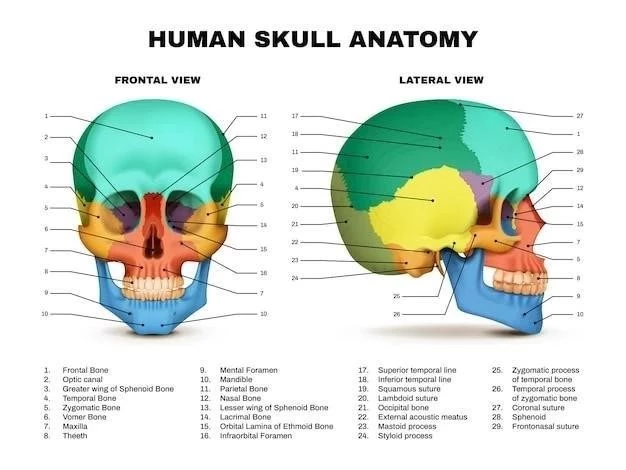
The pursuit of knowledge, the relentless quest for understanding, has been a driving force behind human civilization since its dawn. From the ancient philosophers of Greece to the modern scientists of today, individuals have dedicated their lives to unraveling the mysteries of the universe and the intricacies of human existence; This pursuit of knowledge has culminated in the establishment of institutions dedicated to fostering intellectual growth and disseminating wisdom, institutions we now know as universities. Within these hallowed halls, a select group of individuals embark on a rigorous journey of academic excellence, culminating in the attainment of the highest academic degree⁚ the doctorate. This article delves into the lives and contributions of three prominent figures who have earned this esteemed title, each with their own unique path and profound impact on the world of philosophy.
Huarte de San Juan⁚ A Scholar of the Spanish Renaissance
Born in the vibrant city of San Juan de la Peña, Spain, in the 16th century, Juan Huarte de San Juan stands as a towering figure in the annals of Renaissance philosophy. His life was one of intellectual curiosity, tireless exploration, and unwavering dedication to the pursuit of knowledge. Huarte de San Juan’s journey began in the bustling academic centers of Spain, where he immersed himself in the rich tapestry of classical and contemporary thought. He honed his skills in rhetoric, logic, and philosophy, laying the foundation for a career that would forever shape the intellectual landscape of his time.
Huarte de San Juan’s most celebrated work, “Examen de Ingenios para las Ciencias,” stands as a testament to his brilliance and his profound understanding of the human mind. This groundbreaking treatise, published in 1575, delved into the nature of human intelligence, exploring its diverse forms and capacities. Huarte de San Juan’s meticulous analysis of the cognitive faculties, his insights into the relationship between temperament and intellectual aptitude, and his groundbreaking theories on the role of education in shaping individual potential, revolutionized the field of psychology and education. His work transcended the confines of academic discourse, finding resonance in the broader cultural and social spheres, influencing educational practices and sparking lively debates on the nature of human intelligence.
Huarte de San Juan’s legacy extends far beyond his written works. He served as a mentor to countless aspiring scholars, guiding them on their intellectual journeys and inspiring them to pursue knowledge with unwavering passion. His influence extended to the highest echelons of Spanish society, where he was sought after as an advisor and confidant by members of the royal court and the clergy. Huarte de San Juan’s life exemplifies the transformative power of intellectual curiosity and the profound impact that a dedicated scholar can have on the world.
Pereira⁚ A Champion of Enlightenment Thought in South America
Across the Atlantic, in the vibrant city of Pereira, Colombia, another prominent figure emerged, leaving an indelible mark on the intellectual landscape of South America. Francisco José de Caldas, better known as “Pereira,” was born in 1768, a time when the seeds of the Enlightenment were taking root across the globe. His thirst for knowledge led him to pursue a formal education in the esteemed universities of Spain, where he immersed himself in the scientific and philosophical currents that were sweeping Europe. He returned to his homeland armed with the tools of reason and a burning desire to contribute to the advancement of knowledge in his own country.
Pereira’s contributions extended far beyond the confines of academia. He embraced the spirit of the Enlightenment, becoming a staunch advocate for scientific inquiry, rational thought, and social progress. His writings explored a wide range of subjects, from botany and astronomy to geography and political philosophy. He established scientific societies, conducted groundbreaking research, and championed education as a cornerstone of social advancement. Pereira’s tireless efforts to promote scientific literacy and foster a culture of intellectual inquiry earned him the respect and admiration of his contemporaries. His legacy continues to inspire generations of scholars and scientists in South America, reminding them of the power of knowledge to transform societies and shape the future.
S. de Nantes⁚ A Pioneer of Feminist Philosophy in France
The journey of intellectual exploration takes us to the heart of Europe, to the city of Nantes, France, where Simone de Beauvoir, a towering figure in the annals of 20th-century philosophy, was born in 1908. Her life was marked by a relentless pursuit of understanding, a deep commitment to social justice, and a profound desire to challenge the status quo. De Beauvoir’s journey began in the hallowed halls of the Sorbonne, where she immersed herself in the works of the great philosophers, absorbing their insights and developing her own unique philosophical perspective.
De Beauvoir’s most influential work, “The Second Sex,” published in 1949, stands as a landmark achievement in feminist thought. This groundbreaking treatise challenged the traditional view of women’s roles in society, exposing the inherent biases and inequalities that have historically marginalized women. De Beauvoir’s analysis of the social and cultural forces that shape gender identity, her exploration of the concept of existential freedom, and her call for women’s liberation from patriarchal structures, ignited a global movement for women’s rights and equality.
De Beauvoir’s legacy extends far beyond her written works. She was a tireless advocate for social justice, a vocal critic of oppression in all its forms, and a champion of human rights. Her life exemplified the power of intellectual engagement to effect social change, inspiring generations of feminists and activists to fight for a more just and equitable world. Her influence can be seen in the ongoing struggle for gender equality, a struggle that continues to inspire generations of individuals to challenge the status quo and strive for a more just and equitable world.
The Enduring Legacy of Doctoral Scholars
The lives and contributions of Huarte de San Juan, Pereira, and S. de Nantes exemplify the enduring power of intellectual pursuit and the profound impact that doctoral scholars can have on the world. Their journeys, each marked by unique challenges and triumphs, underscore the importance of education, research, and the relentless pursuit of knowledge. Their legacies serve as a beacon of inspiration for aspiring scholars, reminding them of the transformative power of intellectual exploration and the responsibility that comes with the pursuit of knowledge.
The doctorate, a testament to years of dedicated study, rigorous research, and intellectual rigor, represents more than just an academic achievement. It is a symbol of commitment to the advancement of knowledge, a dedication to the pursuit of truth, and a recognition of the transformative power of the human mind. The scholars we have explored in this article, each with their unique contributions and lasting legacies, stand as beacons of inspiration, reminding us of the profound impact that intellectual pursuit can have on the world. Their lives and works serve as a testament to the enduring power of knowledge, the importance of education, and the transformative potential of the human mind.




L’article explore avec finesse les liens entre la quête de la connaissance et l’obtention du doctorat. L’auteur met en évidence l’importance des institutions universitaires dans le développement intellectuel et la transmission du savoir. La présentation des trois figures marquantes, Huarte de San Juan, Locke et Kant, est claire et informative, permettant au lecteur de saisir l’impact de leurs contributions sur le domaine de la philosophie.
L’article est un excellent exemple de la manière dont la philosophie peut éclairer notre compréhension du monde. L’auteur met en lumière les liens entre la pensée philosophique et les questions sociales, politiques et économiques de notre époque. La description de l’œuvre de Kant, notamment sa théorie du jugement, est particulièrement pertinente dans le contexte actuel.
L’article offre une perspective historique intéressante sur l’évolution de la philosophie à travers les siècles. L’auteur met en lumière les liens entre les différentes époques et les contributions de chaque figure étudiée. La présentation de l’œuvre de Locke, notamment ses idées sur le contrat social, est particulièrement pertinente dans le contexte actuel.
L’article est un témoignage de la richesse et de la diversité de la pensée philosophique. L’auteur met en lumière les contributions de trois figures marquantes et leur impact sur le développement de la philosophie occidentale. La description de l’œuvre de Kant, notamment sa critique de la raison pratique, est particulièrement éclairante et offre une perspective nouvelle sur la morale et la politique.
L’article est bien écrit et offre une introduction claire et concise à la vie et aux contributions de trois éminents docteurs en philosophie. L’auteur met en évidence les aspects clés de l’œuvre de chaque figure et leur impact sur le développement de la pensée occidentale. La description de l’œuvre de Huarte de San Juan, notamment son analyse de l’intelligence humaine, est particulièrement intéressante.
L’article est un excellent exemple de la manière dont la philosophie peut éclairer notre compréhension de l’être humain. L’auteur met en lumière les liens entre la pensée philosophique et les questions de la nature humaine, de la conscience et de la liberté. La description de l’œuvre de Huarte de San Juan, notamment son analyse des différents types d’intelligence, est particulièrement pertinente dans le contexte actuel.
L’article est un témoignage de l’importance de la recherche et de l’enseignement dans le domaine de la philosophie. L’auteur met en évidence le rôle des universités dans la formation des futurs penseurs et la transmission du savoir. La présentation des travaux de Locke et Kant, notamment leurs contributions à la théorie de la connaissance, est particulièrement instructive.
Cet article présente un aperçu fascinant de la vie et des contributions de trois éminents docteurs en philosophie. L’auteur met en lumière les parcours uniques de chaque individu et leur impact profond sur le monde de la pensée. La description de l’œuvre de Huarte de San Juan, notamment son « Examen de Ingenios pour les Sciences », est particulièrement captivante et offre une perspective éclairante sur la philosophie de la Renaissance.
L’article met en avant la diversité des domaines de recherche en philosophie. L’auteur souligne l’importance de l’interdisciplinarité et de la collaboration entre les différents courants de pensée. La présentation des travaux de Locke et Kant, notamment leurs contributions à la théorie politique et à la métaphysique, est particulièrement enrichissante.
L’article met en évidence l’importance de la recherche et de l’innovation dans le domaine de la philosophie. L’auteur souligne la contribution des trois figures étudiées à l’avancement de la pensée et à la compréhension du monde. La description de l’œuvre de Kant, notamment sa critique de la raison pure, est particulièrement éclairante et met en lumière la complexité de ses arguments.
L’article met en lumière la diversité des parcours et des contributions des docteurs en philosophie. L’auteur souligne l’importance de l’engagement personnel et de la passion pour la recherche dans l’obtention de ce titre prestigieux. La description des travaux de Locke et Kant est particulièrement bien documentée et offre une analyse approfondie de leurs idées.